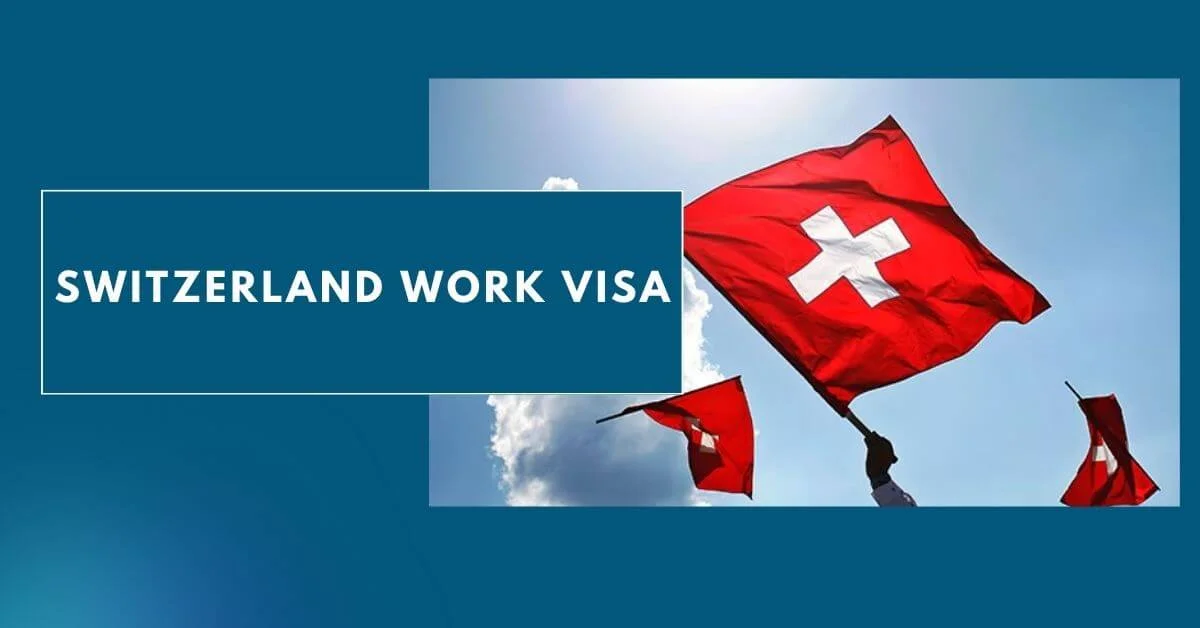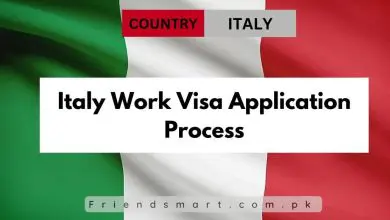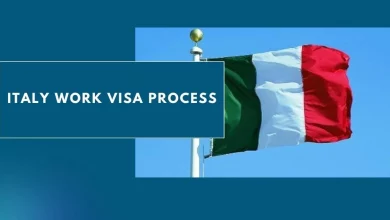Switzerland Work Visa 2024 – How to Get

Switzerland is a highly desirable destination for employment due to its robust economy, remarkable way of life, and abundant job prospects. The process of obtaining a work visa, however, can be complicated. There are various restrictions, regulations, and factors to contemplate.
It is essential, if you are contemplating employment in Switzerland, that you comprehend the work visa application process. This all-encompassing manual offers detailed instructions, prerequisites, and insightful information regarding the Swiss labor market. Everything you need to know is as follows:
Making It Easier for You
International professionals are presented with thrilling opportunities when working in Switzerland. Nevertheless, obtaining a work visa is an essential prerequisite for obtaining employment. The objective of this guide is to furnish a comprehensive synopsis of the work visa application procedure, minimum requirements, and practical assets that facilitate assimilation into the Swiss labor market.
Check Also: Jobs in Switzerland For Foreigners with Visa Sponsorship
1. Understanding the Basics: Do You Need a Work Visa?
Switzerland, an associate of the Schengen Agreement and a non-EU member, applies distinct visa criteria in accordance with nationality. Work and residence in Switzerland are both possible for citizens of EFTA and EU member states without requiring a work visa. Nevertheless, non-EU/EFTA nationals encounter a slightly more intricate process.
2. The Criteria for Eligibility
Switzerland is eager to receive qualified and competent professionals. You must check the following options in order to be considered:
- Professional Credentials: Possessing a university degree or substantial work experience and specialized knowledge in the respective domain.
- Job Confirmation: An offer of employment from a Swiss employer has already been accepted.
- The adherence of your application to the quotas for annual visas established by the Swiss government.
3. Types of Work Visas
- Permit L (Short-term Residence):
- Initially issued for one year.
- A confirmation of employment from a Swiss employer is required.
- Expired after a period of 24 months.
- Permit B (Long-term Residence):
- Renewable annually.
- Ten years of continuous residence with a B Permit are required to become eligible for a C Permit.
- Permit C (Permanent Residence):
- Authorized to reside and work for any employer in Switzerland.
4. Application Process Explained
- Step 1: Obtain employment in Switzerland and confirm that your employer is willing to provide visa sponsorship.
- Step 2: Collect all required documentation for the application for a work visa.
- Step 3: Your employer will submit the application for your Swiss residence permit.
- Step 4: Request a work visa for Switzerland through your country of origin.
Applications may be submitted by non-EU residents at Swiss embassies, consulates, or via VFS Global in their respective nations.
5. Where to Look for Visa Sponsorship Jobs?
Schweiz is home to a multitude of multinational corporations renowned for their sponsorship of work visas. Several notable individuals include:
- Nestle
- Novartis
- Roche Group
- Glencore
- Adecco
- United Nations
- World Health Organization
- World Trade Organization
- CERN
- ETH Zurich
Academic and research institutions such as the University of Geneva, the University of Basel, and the University of Bern often provide visa-sponsored positions, in addition to the business sector.
To conduct a comprehensive job search, it is advisable to visit the EURES Portal, which provides the ability to filter employment opportunities exclusively within Switzerland.
Benefits of Switzerland Work Visa:
- Having Entry to a Robust Economy: Switzerland’s robust and stable economy provides a diverse array of employment prospects spanning multiple sectors.
- Extremely High Standard of Living: Switzerland rates highly on global quality of life indices on a consistent basis. Switzerland frequently provides exceptional healthcare, education, public services, and quality of life for its expatriate workforce.
- Ecosystem of Multiple Languages: Switzerland is a multilingual nation where German, French, Italian, and Romansh are the four official languages. The opportunity to work in Switzerland affords one the chance to interact with a culturally and linguistically diverse environment.
- Hub for Global Business: Numerous multinational corporations, international organizations, and financial institutions are headquartered in Switzerland. One may gain exposure to a global business environment by working in the country.
- Outstanding Healthcare System: Switzerland’s healthcare infrastructure is highly regarded. Individuals who possess a valid work visa generally qualify for access to the nation’s premium healthcare facilities.
- Academic Opportunities: Switzerland provides exceptional educational opportunities, including renowned international universities and institutions, for those with families.
- Security and Protection: The low crime rate and reputation for safety in Switzerland contribute to the security of the living environment for both locals and foreigners.
- Stunning Landscapes and Outdoor Activities: The picturesque landscapes of Switzerland, which include the Alps and pristine waterways, are well-known. Outdoor activities such as skiing, hiking, and exploring the country’s natural grandeur are available to expatriates.
- Public transportation efficiency: The efficient and highly developed public transportation system in Switzerland facilitates travel both within the country and to neighboring regions.
- The Value of Cultural Diversity: Cultural diversity in Switzerland is shaped by the country’s linguistic regions. An individual can experience and develop an appreciation for a fusion of German, French, Italian, and Roman cultural influences by working in the country.
Conclusion:
Your next professional destination could be Switzerland, due to its thriving economy and hospitable business climate. Notwithstanding the country’s innumerable opportunities, keep in mind that excellence and credentials are also required. It is crucial to arrive adequately prepared, encompassing both professional acumen and knowledge of the visa application procedure. It could be that your Swiss utopia is only a few steps away.
People Also Ask:
-
How do I get a work visa for Switzerland?
The process for obtaining a Swiss work visa goes through these steps:
Finding a job in Switzerland
Completing the Swiss work visa document file
Your employer applies for your residence permit in Switzerland.
You apply for the Switzerland work visa in your country. -
How much is a Swiss work visa from Pakistan?
The visa fee for Pakistani citizens applying to the Switzerland Embassy is currently 80 euros (equivalent to PKR 25,600) for adults. Please note that visa fees may differ based on the applicant’s nationality and are subject to change over time.
-
Is a Switzerland work visa easy to get?
Non-EU/EFTA nationals who intend to live and work in Switzerland should be aware that the Swiss government has permit quotas in place, which only allow a certain number of permits to be distributed every year. When the quota is met, expats must wait another year to apply for the permit.



